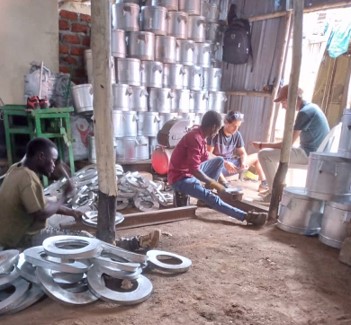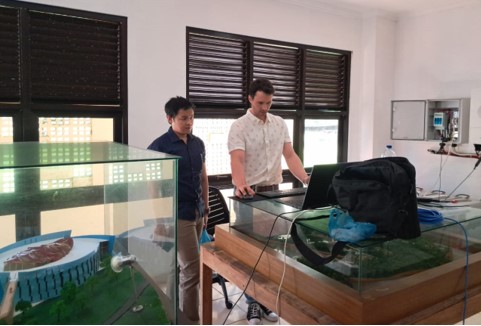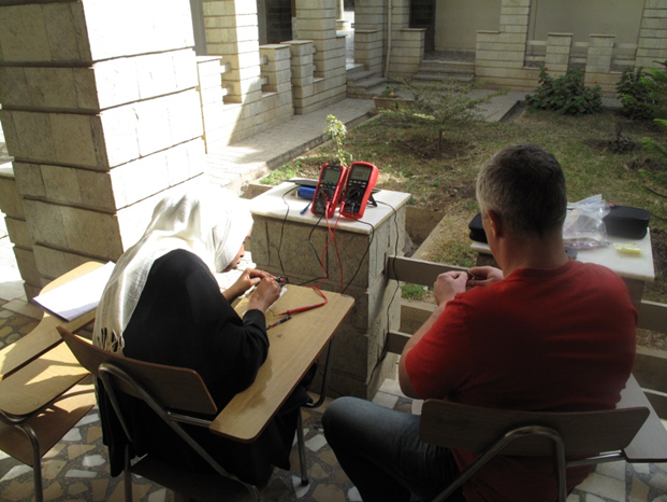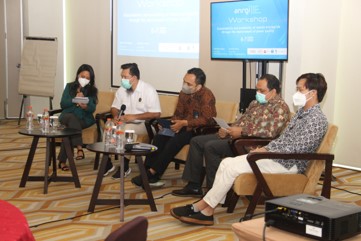4TU Alliance on Energy Access
General Introduction
General Introduction
The four technical universities of the Netherlands all have researchers working on the energy access goals of the first target of SDG7: By 2030, ensure universal access to affordable, reliable, and modern energy services.
Despite significant progress towards SDG7 over the past decade, over 700 million people lack access to electricity and nearly 2.5 billion people do not have access to clean cooking. Moreover, based on current trend, nearly 10 percent of the world population will lack access to electricity access and nearly 30 percent to clean cooking by 2030 [1] [2]. This is pertinent to mitigating greenhouse gas emissions and adapting to climate change.
Among the key issues involved is a fragmented approach to addressing energy access where learnings from technological advancements, user-centric design, sustainable business models, and policy innovations are not shared nor combined in a holistic manner. Although academia can play a key role here, energy access topics in Low- and Middle-Income Countries (LMIC) contexts are relatively underrepresented at each of the universities and in academia in general. We believe that joining forces at the four technical universities each with its own unique strengths will bring research and education pertaining to low resources settings to a next level.
We therefore built a 4TU Alliance on Energy Access in LMICs as a platform for researchers to join forces and share insights, their findings and streamline the research capacity for SDG7 and to connect with the Dutch energy access sector. This aims at supporting and coordinating research and educational activities with impact on one hand and have strong collaboration with the Dutch energy access sector on the other, creating a two-way feedback loop.
Reference:
[2]Overview UNSDG 7: Ensure access to affordable, reliable, sustainable and modern energy for all
The Universities' Profile and Team Members
The Universities' Profile and Team Members
Technical University of Delft
The TU Delft values research and education related to LIMCs and supports this ambition mainly through the TU Delft | Global Initiative in its Energy Access for All program. TU Delft has a variety of researchers working on the Energy Access theme in topics ranging from the WEF-nexus to off-grid systems, to public policy analysis and context-specific design methodologies.
Current Member:
Nihit Goyal, Luis Cutz, Kenneth Bruninx
University of Twente
The University of Twente (UT) has a specialized group in energy access that takes a transdisciplinary approach. In the field of electrical engineering, which encompasses electromagnetic compatibility and power electronics, the primary goal is to improve power quality to better serve the users. In the area of technology management, UT works on co-creation processes for innovations in the decentralized renewable energy field. UT researchers also work on philosophical and sociological frameworks to analyse the social impacts of energy access technologies.
Current Member:
Jelena Popovic, Niek Moonen, Amalia Suryani, Maarten Appelman, Ilman Sulaeman
Wageningen University & Research
The wide range of energy access themes at Wageningen University range from energy sovereignty, energy democracy and just energy transition, typically in relation to some of WUR’s key themes of climate change, biodiversity and food. Researchers and teachers working on energy access closely connect with the WUR Energy Alliance, which is a bottom-up university-wide network of researchers and teachers working on three key pillars: social, spatial and technological aspects.
Current Member:
Technical University of Eindhoven
The Technical University of Eindhoven works on energy access topics mainly in the department of Industrial Engineering and Innovation Sciences (IE&IS) and to some extent in Electrical Engineering (EE). The scientific staff in IE&IS works on topics that cover the assessment of functionality and sustainability of off-grid systems investigated from a holistic socio-technical systems perspective. Energy economics and circularity are important focus areas in their work. The IE&IS activities distinguish themselves by their strong focus on the historical context and engagement with critical development studies, connecting access-to-energy topics to the decolonization agenda. The Electrical Energy Systems group in EE facilitates student and PhD projects on design and configuration of mini grids powered by renewable energy sources.
Current Member:
Highlighted Activities on Energy Access
Highlighted Activities on Energy Access
With this, we highlight several activities as examples that the Alliance has been participating in and making contributions to Energy Access:
- Contribution to the UN Global Stocktake on Sustainable Development Goal 7 (SDG7) [link]
Researchers from the Alliance are participating in the Online Multi-Stakeholder Consultation as part of preparations for the UN Global Stocktake on SDG7. Held in March-April 2024, these consultations aimed to assess progress towards SDG7, raise ambition for energy action, and foster partnerships and commitments. The consultations also supported intergovernmental dialogue on energy. This virtual platform enabled global stakeholders to share their expertise and perspectives, contributing to the comprehensive review of SDG7 progress and the development of future energy strategies.
- Participate in GROW
GROW is a new research program in the Netherlands, focussing on Graduate Research On Worldwide challenges. GROW employs Interdisciplinary, Intersectoral and International research (or Triple I) to address complex / wicked challenges such as the Sustainable Development Goals in Low and Middle Income Countries. On 25th and 26th April 2024, our core members - Nowella Anyango van Zwieten and Maarten Appelman have hosted a workshop during the GROW event 2024.
- Member of NL Energy Compact
4TU Alliance on Energy Access is an active member of NL Energy Compact, which is initiated by the Ministry of Foreign Affairs of the Netherlands, with the joint aim of supporting people in low- and middle-income countries to reach the SDG7 goals by 2030 and net-zero emissions by 2050. For example, our core member - Henny Romijn- presented at the quarterly organized NL Energy Compact Cafe on 23rd May 2024.
- Contribute to (inter)national conferences:
4TU Alliance on Energy Access has been making valuable contributions to different (inter)national conferences on Energy Access. For the Wageningen Centre of Sustainability Governance (WCSG) Conference 2024: Governing Sustainability Transformations, core members will host an innovative session on 18th October 2024 with a focus on "Rethinking SDG7: Current Gaps and Future Directions of Energy Access Beyond 2030", including the 7 perspectives of the 4TU Energy Access Alliance on SGD7.
- Education contribution at master honors program 4TU.Responsible Sustainability Challenge:
Alliance has joined the teaching activities at master honors program 4TU.RSC since track 2023. For example, our core members Dr. Henny Romijn and Dr. Nowella Anyango-van Zwieten have contributed by giving presentations and lectures in the program. During track 2023, Henny was also the co-mentor from an academic perspective for students' challenge assignments.
- White paper regarding our perspectives on SDG7 beyond 2030:
4TU Alliance on Energy Access has been working on the white paper to show the different perspectives which are important to SDG7 beyond 2023. This white paper is a joint effort that synthesises decades of experience among an interdisciplinary and international team of scholars based in the Alliance. The researchers involved have been working on energy access across disciplines, geographies, scales, sectors. This paper also includes the perspectives of the Global South partners that they have and continue to work with.
- Join “Kenniscafé” about “Waarde van Wetenschap voor Energieonderzoek" in Dudok in Den Haag, organized by Universiteiten van Nederland and NERA [news link]:
On 11 November 2024, Maarten Appelman, as the representative from 4TU Alliance on Energy Access and the representative of PhD students in the universities of the Netherlands joined "Kenniscafe" about “Waarde van Wetenschap voor Energieonderzoek". He has sent a strong joint message on the value of energy research especially in the new context of government cuts on research, education, and development cooperation.




Some pictures of the Alliance activities



